#17 The ELECTION Podcast returns for a special edition, recorded in front of a live audience as part of the Cambridge Festival of Ideas 2015.
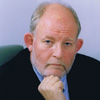
We ask special guest Charles Clarke - the former Labour Home Secretary - about political leadership, the Corbyn phenomenon, and what he thinks Labour needs to do in opposition to become a party of government again. The original ELECTION podcast panel also takes part, talking about what’s been happening in British politics since we finished broadcasting in June, as well as also looking ahead to the US primaries and the EU referendum. These are both subjects we will be talking about when ELECTION returns for a second series in January. The panel also take questions from the audience, who were asked to think of an answer to the question: "If Jeremy Corbyn can be elected leader of Labour, what other seemingly impossible things can happen?"
(ELECTION returns for a 12 week run fron January 2016. Follow @Dept_of_POLIS #ElectionPodcast, OR keep an eye on this page for how to find bonus interviews, features and to find out how pupils at your school or college can be involved.)
Posted 27/10/15
In the run up to ELECTION: Live!, Liberal Democrat - and former MP for Cambridge - Julian Huppert spoke to ELECTION about: what happened in the general election; the Labour party’s future; the vanishing centre ground and his new teaching role at Polis.
#16 - FINALE: Remembering a remarkable election PLUS Lord Grabiner on the Human Rights Act, the future of Labour & the lessons of Blair
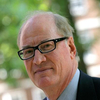 In the final episode of the series, the team debate what we will remember about this election. We’ve had television debates, an extraordinary exit poll, and the ‘Ed Stone’ – but what will stick in the public consciousness over the years ahead? And in light of erroneous polls and wild exaggerations of the power of social media, to what extent was this an election of illusions? In the end, did it live up to the hype? Then we interview Lord Grabiner QC, influential barrister and someone at the top level of Labour politics, to discuss the Human Rights Act – what it’s really all about, why people feel so strongly about it, and the Conservative strategy for loosening its power over UK law. And as a close ally and friend to David Miliband, we also ask him for his thoughts on the lessons of the Blair years, and whether the elder Miliband plans to return. Finally, the team look forward to the next series in January, which will cover elections across the world, the US presidential primaries, and the evolving landscape of UK politics. Posted 27/5/15
In the final episode of the series, the team debate what we will remember about this election. We’ve had television debates, an extraordinary exit poll, and the ‘Ed Stone’ – but what will stick in the public consciousness over the years ahead? And in light of erroneous polls and wild exaggerations of the power of social media, to what extent was this an election of illusions? In the end, did it live up to the hype? Then we interview Lord Grabiner QC, influential barrister and someone at the top level of Labour politics, to discuss the Human Rights Act – what it’s really all about, why people feel so strongly about it, and the Conservative strategy for loosening its power over UK law. And as a close ally and friend to David Miliband, we also ask him for his thoughts on the lessons of the Blair years, and whether the elder Miliband plans to return. Finally, the team look forward to the next series in January, which will cover elections across the world, the US presidential primaries, and the evolving landscape of UK politics. Posted 27/5/15
#15 - Richard Danbury on television debates, new media & the BBC
 In the penultimate episode of the series, we interview one of the deputy editors of the pioneering prime ministerial television debates in 2010 and a producer of Jeremy Paxman’s piercing interviews with Cameron and Miliband, to discuss the power of old and new forms of media. Do performers make the best politicians? Are the Press as powerful as people think? And what role, if any, did social media play in this election? Then in the week that saw new MPs jostle for seats in Parliament, the regular team discuss the historic twists and turns of unionist politics, the SNP strategy, and the on-going Labour leadership contest. Do ambitious politicians really think five or ten years ahead, and if so, what does that mean for our democracy?
In the penultimate episode of the series, we interview one of the deputy editors of the pioneering prime ministerial television debates in 2010 and a producer of Jeremy Paxman’s piercing interviews with Cameron and Miliband, to discuss the power of old and new forms of media. Do performers make the best politicians? Are the Press as powerful as people think? And what role, if any, did social media play in this election? Then in the week that saw new MPs jostle for seats in Parliament, the regular team discuss the historic twists and turns of unionist politics, the SNP strategy, and the on-going Labour leadership contest. Do ambitious politicians really think five or ten years ahead, and if so, what does that mean for our democracy?
Posted 20/5/15
#14 - ELECTION RESULT SPECIAL: Former guests discuss the outcome PLUS Chris Huhne on the Lib Dem collapse, electoral reform & the future of progressive politics
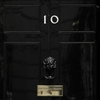 After one of the most unexpected election results in modern political history, we debate what won it for the Conservatives. Was it personality, fear, money, or the issues - and what does it tell us about the British electorate? The team also discuss the hurdles Labour must overcome to recover, and what problems the Conservatives will have to tackle over the coming years.
After one of the most unexpected election results in modern political history, we debate what won it for the Conservatives. Was it personality, fear, money, or the issues - and what does it tell us about the British electorate? The team also discuss the hurdles Labour must overcome to recover, and what problems the Conservatives will have to tackle over the coming years.  Then we talk to some of our former guests for their reaction – was it what they expected, and if not, why not? Finally we interview Chris Huhne - the former Liberal Democrat Cabinet member who narrowly lost to Nick Clegg for the Party leadership – for his thoughts on the Party’s collapse, what it means for progressive politics, and whether the result spells the end of Coalitions in Britain. Posted 13/5/15
Then we talk to some of our former guests for their reaction – was it what they expected, and if not, why not? Finally we interview Chris Huhne - the former Liberal Democrat Cabinet member who narrowly lost to Nick Clegg for the Party leadership – for his thoughts on the Party’s collapse, what it means for progressive politics, and whether the result spells the end of Coalitions in Britain. Posted 13/5/15
#13 – David Howarth on winning an election, Polling Day & predictions
 With one day to go, we interview the former politician and academic David Howarth – who won a surprise victory to become the Liberal Democrat MP for Cambridge in 2005 – for his insight on the twists and turns of Polling Day, and the daily pressures of life in Westminster. In a refreshingly candid discussion, he reveals why the ‘public mood’ is a myth, what it’s really like on the campaign trail, why the legacy of the MP expenses scandal makes him fear for the future of our democracy, and how Alex Salmond predicted the key role of minor parties almost a decade ago. Also in this episode, we speak to Khue Pham – foreign correspondent for the leading German newspaper Die Zeit – for a German’s perspective on the quirks of British elections, and whether a grand coalition of Labour and the Conservatives is the answer to our political stalemate. Finally, our regular panel assess their predictions from earlier podcasts, and give their own forecast for tomorrow’s result. Posted 6/5/15
With one day to go, we interview the former politician and academic David Howarth – who won a surprise victory to become the Liberal Democrat MP for Cambridge in 2005 – for his insight on the twists and turns of Polling Day, and the daily pressures of life in Westminster. In a refreshingly candid discussion, he reveals why the ‘public mood’ is a myth, what it’s really like on the campaign trail, why the legacy of the MP expenses scandal makes him fear for the future of our democracy, and how Alex Salmond predicted the key role of minor parties almost a decade ago. Also in this episode, we speak to Khue Pham – foreign correspondent for the leading German newspaper Die Zeit – for a German’s perspective on the quirks of British elections, and whether a grand coalition of Labour and the Conservatives is the answer to our political stalemate. Finally, our regular panel assess their predictions from earlier podcasts, and give their own forecast for tomorrow’s result. Posted 6/5/15
#12 - Richard N. Haass on foreign policy, the US perspective on this election & Northern Ireland PLUS Student apathy in 2015
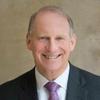 UK politicians have defined this election as the most important for a generation, but is that how it’s seen outside the British bubble? Is this an election with worldwide implications, or has it been blown out of proportion? And why has foreign policy been so neglected in this campaign? We put these questions to Richard N. Haass – senior American diplomat, President of the Council on Foreign Relations, and adviser to four US Presidents from George HW Bush to Barack Obama – to discuss our election through American eyes. We then turn to Northern Ireland where Mr Haass was US Special Envoy, to discuss the peace process, NI’s potentially important role in this election, and whether The Troubles are truly over.
UK politicians have defined this election as the most important for a generation, but is that how it’s seen outside the British bubble? Is this an election with worldwide implications, or has it been blown out of proportion? And why has foreign policy been so neglected in this campaign? We put these questions to Richard N. Haass – senior American diplomat, President of the Council on Foreign Relations, and adviser to four US Presidents from George HW Bush to Barack Obama – to discuss our election through American eyes. We then turn to Northern Ireland where Mr Haass was US Special Envoy, to discuss the peace process, NI’s potentially important role in this election, and whether The Troubles are truly over.
Also this week, we ask a group of first time student voters for their perspective – what’s been memorable about their first election, why apathy is so prevalent among young people, and is there room for any optimism about the future? Finally, the regular team discuss the similarities and differences between the 1992 and 2015 general elections, the coalition options no-one is talking about, and whether Ed Miliband was right to engage with Russell Brand. Posted 29/4/15
#11 - Sherry Coutu on education, stimulating business & coalitions
 In this election the economy has been centre stage – we know what the politicians think, but what about the business community? Are the fortunes of British business rising or falling? Can the UK economy really compete with the likes of China and the US? How can our education system prepare the next generation for the global marketplace? David puts these questions to Sherry Coutu CBE - one of this country’s most respected entrepreneurs and investors - to discuss the relationship between business, technology, and government. The team also debate whether democracies can grapple with complex economic problems; plus first-past-the-post in multi-party elections, the fate of the Liberal Democrats, and in light of this week’s election result in Finland, our tendency to idolise Nordic politics. Posted 22/4/15
In this election the economy has been centre stage – we know what the politicians think, but what about the business community? Are the fortunes of British business rising or falling? Can the UK economy really compete with the likes of China and the US? How can our education system prepare the next generation for the global marketplace? David puts these questions to Sherry Coutu CBE - one of this country’s most respected entrepreneurs and investors - to discuss the relationship between business, technology, and government. The team also debate whether democracies can grapple with complex economic problems; plus first-past-the-post in multi-party elections, the fate of the Liberal Democrats, and in light of this week’s election result in Finland, our tendency to idolise Nordic politics. Posted 22/4/15
#10 - Barbara Sahakian on political psychology, society & mental health
 Are our brains hardwired to be left-wing or right-wing? How did mental health become a hot political issue? What advice can brain scientists give politicians to help get their message across? This week David interviews Professor Barbara Sahakian – the renowned neuropsychologist who has worked with the UK government on questions of mental health and well-being – to discover the lessons of new scientific research for our politics. The team then discuss the Labour and Conservative manifestos and the inner tensions they reveal within the parties, and what their pledges really mean in an age of coalitions and compromise. And, in the week when Hilary Clinton declared her presidential candidacy, we debate the time spans of political campaigns in the U.K. and the U.S., and the different ways the two countries do politics. Posted 15/4/15
Are our brains hardwired to be left-wing or right-wing? How did mental health become a hot political issue? What advice can brain scientists give politicians to help get their message across? This week David interviews Professor Barbara Sahakian – the renowned neuropsychologist who has worked with the UK government on questions of mental health and well-being – to discover the lessons of new scientific research for our politics. The team then discuss the Labour and Conservative manifestos and the inner tensions they reveal within the parties, and what their pledges really mean in an age of coalitions and compromise. And, in the week when Hilary Clinton declared her presidential candidacy, we debate the time spans of political campaigns in the U.K. and the U.S., and the different ways the two countries do politics. Posted 15/4/15
#9 - Simon Szreter on conspiracy theories, trust in politics & solutions
 It is said that trust in politics is at an all-time low. Our politicians are seen as out of touch and out to fill their own pockets. But when does mistrust become something more profound? This week we discuss this phenomenon in its most extreme form: conspiracy theories. What conspiracy theories do the British public believe? How commonplace are they, and how have they spread? Are people really so wrong to believe that the world is run by a secret elite? We interview a team of Cambridge researchers for answers. Then David turns to Professor Simon Szreter – social historian and founder of ‘History & Policy’ – to discuss how academics are trying to find ways of restoring the public’s faith in politics, and bridge the gap between the politicians’ narrow view of the world and how the voters see it. The team also discuss the television debates, politicians’ use (and abuse) of facts and figures, Tony Blair, and UKIP’s strategy for electoral success. Posted 8/4/15
It is said that trust in politics is at an all-time low. Our politicians are seen as out of touch and out to fill their own pockets. But when does mistrust become something more profound? This week we discuss this phenomenon in its most extreme form: conspiracy theories. What conspiracy theories do the British public believe? How commonplace are they, and how have they spread? Are people really so wrong to believe that the world is run by a secret elite? We interview a team of Cambridge researchers for answers. Then David turns to Professor Simon Szreter – social historian and founder of ‘History & Policy’ – to discuss how academics are trying to find ways of restoring the public’s faith in politics, and bridge the gap between the politicians’ narrow view of the world and how the voters see it. The team also discuss the television debates, politicians’ use (and abuse) of facts and figures, Tony Blair, and UKIP’s strategy for electoral success. Posted 8/4/15
#8 - Robert Tombs on Britishness, Britain's place in Europe & the NHS
 What makes our politics uniquely ‘British’? Why is there no English Independence Party? How did the NHS become a sacred cow? And will Britannia ever rule the waves again? David puts these questions to Professor Robert Tombs – historian and author of a new epic history of England – to discover the impact of culture and foreign affairs on British political life. The team also review David Cameron and Ed Miliband’s favourite books, the pros and cons of the fixed-term Parliament, the neglected but extraordinary Nigerian election, and what to expect between now and polling day. Posted 1/4/15
What makes our politics uniquely ‘British’? Why is there no English Independence Party? How did the NHS become a sacred cow? And will Britannia ever rule the waves again? David puts these questions to Professor Robert Tombs – historian and author of a new epic history of England – to discover the impact of culture and foreign affairs on British political life. The team also review David Cameron and Ed Miliband’s favourite books, the pros and cons of the fixed-term Parliament, the neglected but extraordinary Nigerian election, and what to expect between now and polling day. Posted 1/4/15
#7 - SPECIAL: Michael Howard & Stephan Shakespeare on Margaret Thatcher, the true power of polls, and the impact of UKIP in 2015

 Could Margaret Thatcher have won this election? How would the Iron Lady have handled UKIP? Who would win more seats in 2015 – her or David Cameron? In a special episode featuring remarkable research produced exclusively for the podcast, we put these questions to Michael Howard, former Conservative Leader and member of Mrs Thatcher’s Cabinet, and Stephan Shakespeare, founder of the polling firm YouGov.
Could Margaret Thatcher have won this election? How would the Iron Lady have handled UKIP? Who would win more seats in 2015 – her or David Cameron? In a special episode featuring remarkable research produced exclusively for the podcast, we put these questions to Michael Howard, former Conservative Leader and member of Mrs Thatcher’s Cabinet, and Stephan Shakespeare, founder of the polling firm YouGov.
Other insights include the untold story of how polling impacted the Westminster vote for the Iraq War, why Cameron was wrong to rule out a third-term in office, and the only thing that Michael Howard and Gordon Brown agree upon. Posted 25/3/15
#6 - Rae Langton on Charlie Hebdo, hate vs free speech & blasphemy
 What constitutes hate speech? Does the Press do more harm than good in our democracy? When should words become the government’s business? We put these questions to Professor Rae Langton – award-winning philosopher and the world’s ‘fourth most influential woman thinker’ – and discuss whether free speech can ever be reconciled with a need to suppress hateful voices. The team then discuss the fallout of Ed Miliband’s ‘second kitchen’, whether politicians can – or should – keep their families out of the media spotlight, and the lessons from the Israeli election result. Posted 18/3/15
What constitutes hate speech? Does the Press do more harm than good in our democracy? When should words become the government’s business? We put these questions to Professor Rae Langton – award-winning philosopher and the world’s ‘fourth most influential woman thinker’ – and discuss whether free speech can ever be reconciled with a need to suppress hateful voices. The team then discuss the fallout of Ed Miliband’s ‘second kitchen’, whether politicians can – or should – keep their families out of the media spotlight, and the lessons from the Israeli election result. Posted 18/3/15
#5 - Clare Jackson on the UK, Scotland & the politics of memory
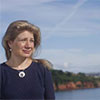 Will the United Kingdom stay together? What have England’s politicians got wrong that Scotland’s have got right? Which had the greater impact on the Scottish Independence Referendum result – people’s views of the past, or of a possible future? We put these questions to the historian and documentary-presenter Clare Jackson, whose widely acclaimed BBC series on the Stuart dynasty was broadcast in the run-up to Referendum last year. The team then discuss the potential impact of Scotland in the upcoming election, and the legacy of a vote that saw the highest electoral turnout in over 60 years. Posted 11/3/15
Will the United Kingdom stay together? What have England’s politicians got wrong that Scotland’s have got right? Which had the greater impact on the Scottish Independence Referendum result – people’s views of the past, or of a possible future? We put these questions to the historian and documentary-presenter Clare Jackson, whose widely acclaimed BBC series on the Stuart dynasty was broadcast in the run-up to Referendum last year. The team then discuss the potential impact of Scotland in the upcoming election, and the legacy of a vote that saw the highest electoral turnout in over 60 years. Posted 11/3/15
#4 - John Naughton on Facebook in Politics, Snowden & Surveillance
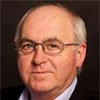 Could Facebook really decide the outcome of this election? Is the Internet a positive force for democracy? Why is global surveillance, as unveiled by Edward Snowden, not an electoral issue? We put these questions to Prof John Naughton – author of A Brief History of the Future and early advocate of the Internet’s power to change the world – and ask if politicians are tuned-in to the transformative potential of social media. Putting cynicism to one side, the team then give their good-points about the General Election so far. Posted 4/3/15
Could Facebook really decide the outcome of this election? Is the Internet a positive force for democracy? Why is global surveillance, as unveiled by Edward Snowden, not an electoral issue? We put these questions to Prof John Naughton – author of A Brief History of the Future and early advocate of the Internet’s power to change the world – and ask if politicians are tuned-in to the transformative potential of social media. Putting cynicism to one side, the team then give their good-points about the General Election so far. Posted 4/3/15
#3 - Martin Jacques on the global perspective, Britain’s decline & China
 David asks Martin Jacques – journalist, academic, and author of the bestseller When China Rules the World – if this election matters in global terms. Will the transformation of China overshadow short-term political events in Britain and Europe? How does China adapt in the absence of democratic elections? Is it possible for our politicians to successfully supervise Britain’s steady decline? The team also discuss the week’s political events. Posted 25/2/15
David asks Martin Jacques – journalist, academic, and author of the bestseller When China Rules the World – if this election matters in global terms. Will the transformation of China overshadow short-term political events in Britain and Europe? How does China adapt in the absence of democratic elections? Is it possible for our politicians to successfully supervise Britain’s steady decline? The team also discuss the week’s political events. Posted 25/2/15
#2 - Martin Rees on short-termism in politics, scientists in power & 2015
 How can we reconcile short-term politics with the long-term global problems we face? Should scientists wield more political power? Is it fair to criticise politicians for faults in our political system, or is it our failing? Or is democracy itself to blame? David puts these questions to Lord (Martin) Rees – cosmologist, Astronomer Royal, and former President of the Royal Society – and someone who believes that mankind only has a 50% chance of making it through this century without a serious global “setback”. The team then debate this week’s political events. Posted 18/2/15
How can we reconcile short-term politics with the long-term global problems we face? Should scientists wield more political power? Is it fair to criticise politicians for faults in our political system, or is it our failing? Or is democracy itself to blame? David puts these questions to Lord (Martin) Rees – cosmologist, Astronomer Royal, and former President of the Royal Society – and someone who believes that mankind only has a 50% chance of making it through this century without a serious global “setback”. The team then debate this week’s political events. Posted 18/2/15
#1 - Maurice Glasman on democracy, creative destruction & Wolf Hall
 David interviews Lord (Maurice) Glasman - Labour peer, academic, and architect of ‘Blue Labour’ – for his predictions on the outcome of 2015, the future of the Labour Party, and what modern politicians can learn from Wolf Hall. The team then give their forecasts for the Election and scrutinise this week’s political events. Posted 11/2/15
David interviews Lord (Maurice) Glasman - Labour peer, academic, and architect of ‘Blue Labour’ – for his predictions on the outcome of 2015, the future of the Labour Party, and what modern politicians can learn from Wolf Hall. The team then give their forecasts for the Election and scrutinise this week’s political events. Posted 11/2/15
